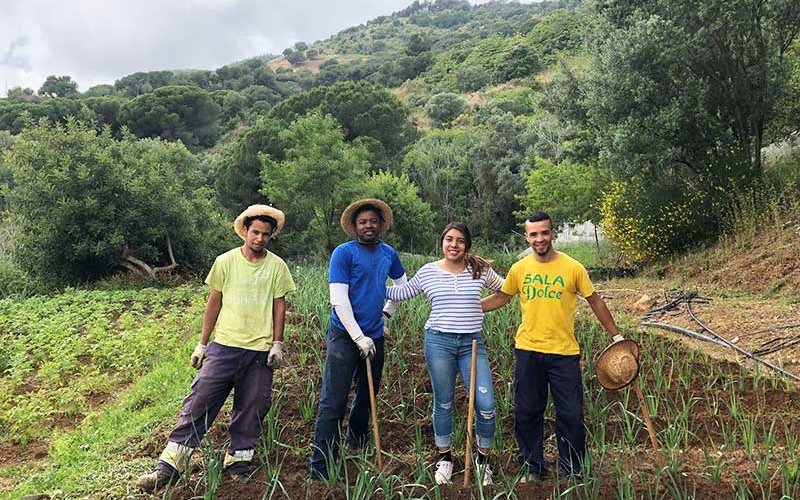
Monique Francisco’s recent monthlong stay in Barcelona validated her decision to study abroad this summer.
“It helped me remember why I became a human services student in the first place and reconnect with my values and vision for peace, justice and equity for all,” she says. “I’m so glad I decided to take the leap.”
While in Spain, CSUF human services majors attended seminar classes and interned with nongovernmental organizations (NGO) serving recent immigrants and refugees.
“Our students have experiences working with nonprofits in the U.S.,” explains Yuying Tsong, associate professor of human services and the program founder and coordinator. Through their overseas work, students see very diferent populations transitioning to a new country, she notes. These experiences “challenge them to think differently about themselves and the way they engage and serve in communities.
“The last four days of the program, we traveled to Marrakesh, Morocco,” says Tsong. “We met and spent time with international and local NGOs working with villages and communities.
“We also met up with a group that works with single moms,” she notes. “They train them to work as chefs and skilled workers in the food industry, so they are more independent. Another agency builds preschools in rural areas and offers literacy workshops for women.”
Francisco worked with an organization that primarily assists immigrants from Pakistan and North Africa, teaching them English and practicing their new language with them.
“On one of the first days of my internship, my internship partner and I spoke to our clients about their lives … their stories were incredibly powerful and moving,” she says.
“A common takeaway that I had from their stories was the strength and resilience that they displayed in overcoming their struggles,” Francisco adds. “Learning their stories and background further motivated me to give my all in helping them reach their personal and professional goals.”
Judith Cordero was similarly affected. The experiences were important “because I will be going into a career where I will try to have a positive impact on the minds of at-risk children and try to help them view the world through a different lens in hopes they will feel motivated to dream less and act more,” Cordero explains.
“I wanted to broaden students’ experiences and exposures to new ideas, the global context and different approaches to working with immigrants and refugees,” says Tsong, who also included lectures on the politics, economics, history and colonization of the communities they visited. “I wanted them to understand the interconnectiveness of everything they do.”